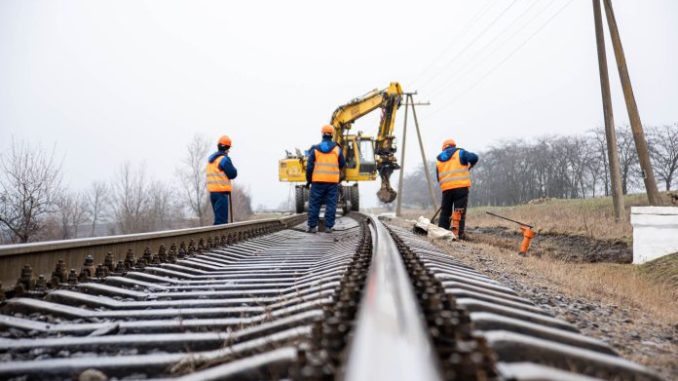The 107 km long Chisinau-Ungheni railway segment will be modernised with the support of the French Government. The funding comes in addition to other financial sources from European funds.

In this regard, the Chisinau executive has approved the start of negotiations on the draft financial protocol between the two countries.
The document provides for a EUR 75 million loan from the French government, which will complement the EUR 33 million loan and EUR 30 million grant package provided by the European Comission, EBRD and EIB under the European Solidarity Lanes initiative.
The rehabilitation work on the Chisinau-Ungheni sector, which is part of the Vălcineț-Bălți-Ungheni-Chișinău-Căinari section, with a total length of 446 km, provides for infrastructure repairs, the purchase of the machinery needed to maintain the railway network and the replacement of the signalling system.
“Moldova’s railway infrastructure comprises 1087 km of main lines and 668 km of auxiliary lines, and the implementation of French and Solidarity Lanes support will ensure the resilience of the national railways. In this sense, the modernisation of the Chisinau-Ungheni segment is a project of strategic importance for sustainable economic development and the interconnection of the country to the Trans-European Rail Transport Network, as well as for strengthening Moldovan-French cooperation links”, says Minister of Infrastructure and Regional Development Lilia Dabija.
The European Bank for Reconstruction and Development (EBRD) has approved a sovereign loan of up to EUR23 million to finance the rehabilitation of two railway sections in Moldova, facilitating the transport of goods on alternative routes from Ukraine through Moldova to the EU. An agreement has been signed for the first tranche of EUR12 million to be used by the Moldovan Railways (CFM) to purchase materials for the rehabilitation of the Valcinet – Balti – Ungheni section. A second tranche of up to EUR11 million would be provided for the rehabilitation of the Chisinau – Căinari section. 71 million is the total cost of the project, which also benefits from an investment grant of up to EUR 20 million from the European Union through its Instrument for Foreign Policy Needs and up to EUR 28 million of co-financing from MFF or state funds.
The project aims to ensure food security and improve access for Ukrainian goods to the largest operational Black Sea port, Constanta, as well as to ports in Romania, Moldova and Ukraine – at Galati, Reni, Ismail and Giurgiulesti.
Share on:



